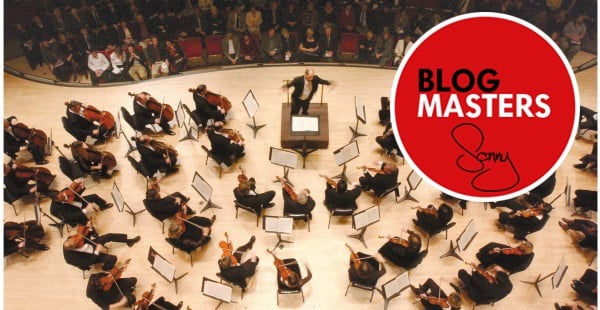Music

Why you should listen to classical music – part 1 (of many)
When most people think of classical music, they either tend to think of wigged serfs entertaining the aristocracy in some bygone era or toffs in tails quaffing champagne at the opera in some hallowed hall. They may recognise a few pieces from TV commercials or when they’re trotted out to serve dramatic function in shows and movies, but beyond that it’s a vast unknown genre hidden behind a perceived class divide, a vast and intimidating body of work and historical distance. Film scores are the closest the average person comes to enjoying the sounds of an orchestra these days (no bad thing in itself, but it’s only the tip of the proverbial iceberg).
It’s my mission in life to change that. Classical music is a living, breathing art form that has a vibrant live scene with millions of passionate listeners and performers of a body of work that goes back throughout history, connecting us to our past yet remaining as alive and relevant today as ever. Like many of those listeners, I was fortunate enough to have had experience of this music through learning an instrument as a child and then in music lessons and concerts while at school. Where many who are “forced” to do this when young get turned off at the repetition and boredom of practice, I got intrigued by the music early on and once I started exploring I got hooked.
It’s because of that exposure and my subsequent interest and investment into listening, learning and understanding classical music that it became an indispensable part of my life, but most people are not so lucky. Either they had no such opportunities growing up or were actively turned off by them (bad teachers and pushy parents have a lot to answer for). For me, this is a tragedy, as classical music has so much to offer and almost anyone can benefit from its endless wonders.
Most people don’t need any convincing that music itself is an enjoyable, beneficial and enriching part of life, of course. Across class, cultures, countries and continents, humans of all ages and stripes intuitively enjoy this abstract but accessible “universal language” and have done for millennia. However many don’t realise the depths to which one can be moved and the emotions that can be expressed when one takes the idea of music itself very seriously, to the height of art.
By way of analogy, most people are literate and reading and writing helps and entertains them in all sorts of ways in life. From lighthearted magazine articles to political manifestos, from intense and esoteric blog posts to comic books, from superficial romantic fiction to deep philosophical tracts, there’s something for everyone and reading a variety of styles, sources and formats can lead to a full and rewarding life. So it is with music.
While there is absolutely nothing wrong with enjoying the pop songs, dance tracks and rock anthems that permeate most modern mainstream culture (indeed, they can be just as enriching), there is something important being left out when music lovers are denied a relationship with classical music. In much the same way that people who love reading should at the very least acquaint themselves with more classical and sophisticated literature and genres and writers of all styles, music lovers should not be afraid to explore how composers and performers throughout the ages have expressed themselves in music, how the fruits of their genius changed the world, and how it might change theirs.
It is my mission in life to encourage people to do just that and I will try to use this blog to help bring down the wall between classical music and anyone who has yet to fall in love with it. By waxing lyrical like I am here, to covering my experiences at live classical concerts throughout the country, to talking about specific composers, time periods, instruments, movements and anything else that comes to mind, I hope to show that Duke Ellington was right – there are only two kinds of music: good music and bad music – and you’re not going to believe how good some music can be.









